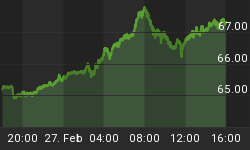According to the U.S. Energy Administration, two months ago the United States total crude oil imports averaged 9,033 thousand barrels per day (tbpd), with the top five exporting countries being Canada (2,666 tbpd), Mexico (1,319 tbpd), Saudi Arabia (1,107 tbpd), Venezuela (930 tbpd) and Nigeria (918 tbpd.)
Notice anything odd about this list? First, three of the top five oil exporters to the U.S. are in the Western hemisphere, and two of them are neighbors.
Secondly, only two of the five states can comfortably be described as stable. Mexico is slowly unraveling due to the drug war, Nigeria's militant regularly attack foreign oil concessions in the Niger delta and Saudi Arabia's geriatric monarchy is nervously watching events unfold in the Middle East, wondering if the "Arab spring" may impact their autocratic hold on power, a view no doubt made more nervous by the sudden arrival on 6 June of Yemeni President Ali Abdullah Saleh to Saudi Arabia for medical treatment.
Of the remaining two, Canada is a stable, prosperous state, and its relations with Washington are excellent.
Which leaves Venezuela - while a stable state, its policies under President Hugo Chávez have rattled Washington to the point that since 2010 neither state has had accredited ambassadors.
On 28 June 2010 President Obama nominated Palmer as U.S. Ambassador to Venezuela but three months later Chávez announced on his weekly TV program that he would not allow Larry Palmer to take up his post after Palmer told a US senator that morale in the Venezuelan army was low and that members of Chávez's government had ties to leftist FARC Colombian rebels. On 28 December Chávez flatly refused to accept Palmer because of his derogatory remarks and the following day the U.S. revoked the accreditation of Venezuelan ambassador, Bernardo Álvarez Herrera.
Worse, on Sunday Venezuelan Minister of Foreign Affairs Nicolás Maduro in an exclusive interview with private TV network Televen said, "The relation (with the U.S.) is frozen... It does not move and there is no indication that there could be positive elements of communication and respect in the near future."
What led to the impasse? Chávez's final sin in Washington's eyes was Venezuela's state-owned oil company Petroleos de Venezuela (PDVSA) supplying gasoline and other refined oil products to Iran, which led the Obama administration on 24 May to impose sanctions against PDVSA. In response, Venezuela's Energy Minister Rafael Ramirez, who is also the head of PDVSA, said the following day that as a sovereign nation Venezuela would continue to maintain relations with Iran and any other country it wanted, adding, "This is a right we are not going to renounce."
Washington's myopia leads it to treat Central and Latin America as if the Monroe Doctrine were still valid. In fact, the most underreported political story in the American press over the last decade is how Latin America has gradually moved out from under Washington's smothering "big brother" embrace as first the Bush administration and now President Obama's fixated on both on the war on terror and Iraqi oil reserves. Most notable among the Latin American states rejecting Washington's dominance, along with its attendant financial institutions of the World Bank and the International Monetary Fund has been Brazil, which now, along with Russia, China and India, is lumped under the sobriquet BRIC as a collective economic powerhouse of the 21st century.
Can Washington really afford to antagonize a nation that exports nearly a million barrels per day to the U.S.? Should Venezuela turn off the taps, then the recent gasoline prices of nearly $4 a gallon will begin to look like a bargain.
And speaking of China, its economic interest in trade devoid of Washington's hectoring political lectures has found a warm reception in Caracas. China has agreed to provide more than $32 billion in assistance to Chávez's government, with the loans to be repaid in oil, in increasing amounts of it during the next decade. China is now Venezuela's biggest foreign lender, enabling Chávez's to boost social spending ahead of the country's 2012 presidential election, leading Chávez to exclaim "Viva China!" on national television.
Venezuela is now exporting to China about 460,000 barrels a day, about 20 percent of its oil exports, according to official figures, which Caracas hopes to double soon. Chen Ping, political counselor at the Chinese Embassy in Caracas noted simply, "Venezuela has what we need."
Pity that Washington, blinkered by outdated ideology, does not see its own interests as clearly as counselor Chen.
Source: Full article at: http://oilprice.com/Energy/Energy-General/U.S.-Venezuelan-Relations-Just-Frozen-or-Beyond-Repair.html
By. John Daly for OilPrice.com















